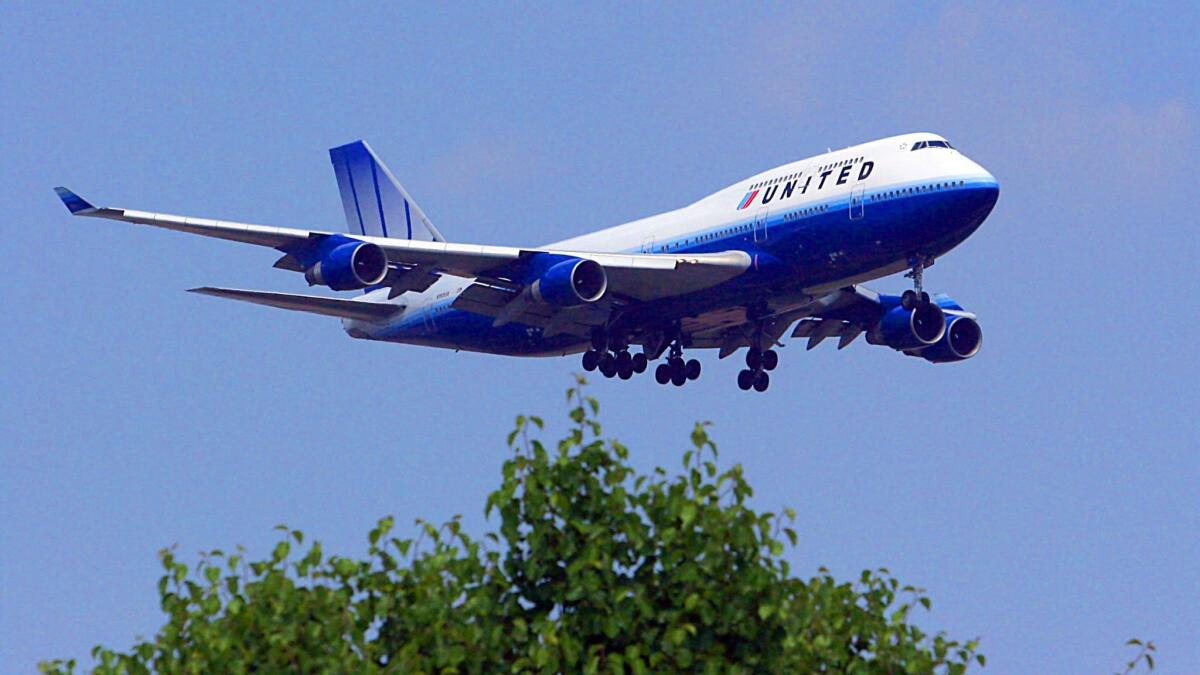Column: Trump just set Boeing on a collision course with China

- Share via
If there’s a poster child for the tonic the current U.S. government has delivered to the country’s corporate sector, it’s Boeing Co.
Fueled by Chief Executive Dennis Muilenburg’s cozy relationship with President Trump, orders for Super Hornet fighter jets and corporate tax cuts, its 146% share-price increase since election day in 2016 has outpaced every other company in the Dow Jones industrial average. Thursday’s 3.5% fall after Trump tweeted his plans to impose tariffs on metal imports should be a warning sign that, beyond the current clear skies, a storm is building.
One obvious risk is increased costs. About 80% of an aircraft’s weight is aluminum, and Trump’s promise to slap levies of 10% on imports of that metal represents a pricing handicap in Muilenburg’s endless battle for market share with Airbus SE.
At the same time, that blow is likely to be cushioned by the fact that managing raw-materials costs is part and parcel of being a manufacturer. Aluminum prices have risen or fallen 10% or more in all but eight of the last 30 years. Boeing, moreover, isn’t a major buyer of aluminum straight from the pot: Most of its supply comes from Arconic Inc., the specialty-products half of the old Alcoa Corp. business. Shares of Arconic slipped 1.5% on Thursday, an indication that the company expected to take part of the hit.
The bigger risk depends on how the coming days and months are handled.
There’s probably no U.S. firm more at risk of trade retaliation from China than Boeing. Of the 10 American businesses that declare more than $5 billion of sales in the country, three — Apple Inc., Las Vegas Sands Corp. and Procter & Gamble Co. — are dependent on consumer spending, so probably somewhat immune to government diktats. Six others are in the semiconductor and tech businesses that China wants to encourage domestically, so they should also enjoy a degree of protection. Against that backdrop, Boeing stands out like a sore thumb.
Most of its biggest customers in China are state-owned airlines and lessors affiliated with government-controlled banks. The few independent players could easily be leaned on by authorities to defer existing orders.
Get ready for the era of hypersonic flight — at five times the speed of sound »
China Inc. has a sound, self-interested rationale for pursuing an aggressive path. Commercial Aircraft Corp. of China Ltd., or Comac, is hoping to pitch its C919 jet as a homegrown competitor to Boeing’s 737 and Airbus’ A320, and it announced last month that it would make its first delivery in 2021.
Using a trade war to put one of the C919’s rivals on the back foot seems the perfect way to crack open the Boeing-Airbus duopoly and advance the interests of China’s own manufacturers. Should the current tit-for-tat over steel and aluminum spiral toward a trade war, few firms will find themselves in a more precarious position than Boeing.
Fickling writes for Bloomberg.
More to Read
Inside the business of entertainment
The Wide Shot brings you news, analysis and insights on everything from streaming wars to production — and what it all means for the future.
You may occasionally receive promotional content from the Los Angeles Times.










